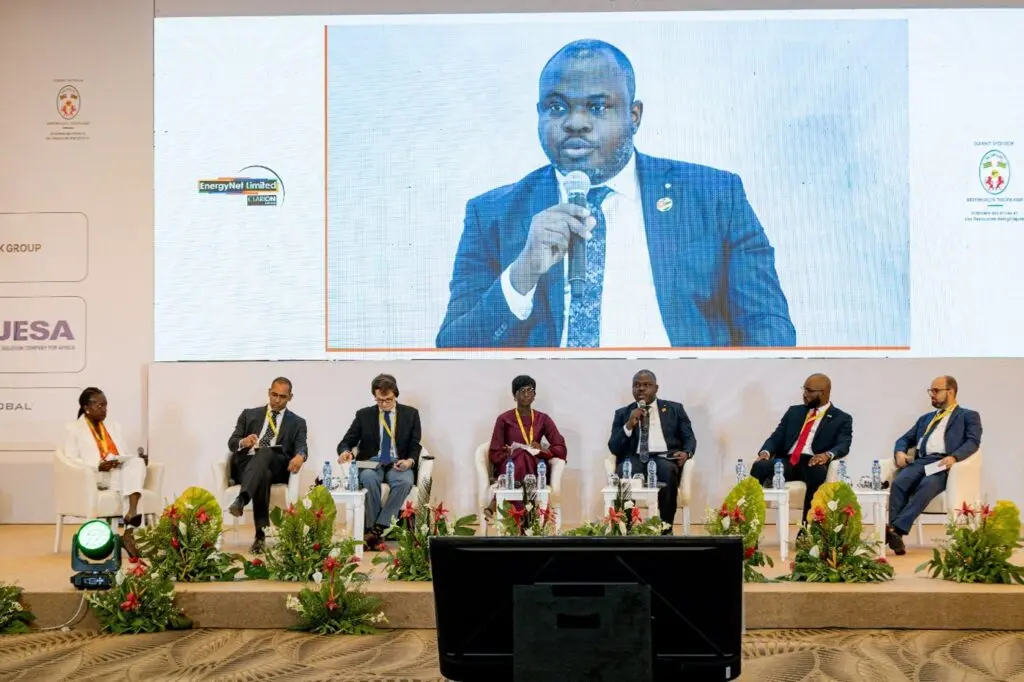
Nigeria’s Dynamic Crossroads: Healthcare, Culture, and Tech Drive Transformation
Nigeria’s buzzing, isn’t it? The nation’s currently navigating a fascinating mix of advancements in healthcare, vibrant cultural expressions, and big leaps in technology. It’s clear Nigeria holds immense potential, even as it tackles its share of ongoing challenges. We’re seeing changes everywhere, from boosting essential medical product manufacturing to opening new state-backed art spaces, and a rapid expansion of data infrastructure in Lagos. This varied progression really paints a compelling portrait of Nigeria gearing up for a future shaped by its own clever ideas and global connections.
Take Lagos, for instance. Dr. Abdu Mukhtar, the coordinator for the Presidential Initiative for Unlocking Healthcare Value Chain, recently laid out some pretty ambitious plans. The goal? To seriously ramp up local production of healthcare products. He shared this vision at the Scientific Products Association of Nigeria Innovate 2025 Conference, stressing how crucial it is for Nigeria to become self-sufficient in medical supplies. It’s part of a bigger government push, you see, to rely less on imports and instead foster local industry growth. Experts believe these efforts, which integrate innovation and strict quality standards, could truly redefine Nigeria’s healthcare landscape. Imagine: better public health and a stronger economy, creating jobs and fostering tech skills. What a win-win, don’t you think? But it’s not all smooth sailing. Down in Benin City, the grand opening of a major new Museum of West African Arts hit a snag. Protesters actually disrupted the event, which was supposed to be a celebration of the region’s rich heritage. What’s the fuss about? It’s those long-standing arguments over the Benin Bronzes, those incredible artifacts that sadly represent a complex history of ownership and identity. This state-backed museum is a massive cultural investment, aiming to showcase regional art and draw in tourists, yet these protests highlight the deep conversations we’re having about who truly owns history, cultural rights, and how institutions should reconcile past wrongs. Dialogue will certainly continue as stakeholders try to balance preservation with ethical responsibilities. This incident clearly highlights the vitality of culture in Nigeria’s national discourse.
Meanwhile, Lagos is quickly turning into a hotbed for cutting-edge data infrastructure. This is absolutely vital for Nigeria’s booming digital economy. We’ve seen two top African data center providers, Equinix and Rack Centre, announce big plans to beef up the city’s cloud and data storage capabilities. Equinix’s new LG3 data center is bringing its Fabric service, letting businesses securely link up their physical and cloud setups, partners, and service providers worldwide. This means smoother data exchange and less lag, which is huge for companies embracing hybrid IT strategies. At the same time, Rack Centre has rolled out EdgeNext’s content delivery network and cloud hosting from its Tier III certified facility in Lagos. CDNs, as you might know, make the internet faster by getting digital content closer to users, improving speed and reliability. That’s a game-changer for online businesses, and it shows Nigeria’s rapid advancement into the digital age. And there’s more good news on the tech front. A scientist from Ahmadu Bello University, Balogun, recently validated a smart camera designed for eye care. While details are still emerging, this innovation shows Nigeria’s commitment to using smart tech to improve diagnoses and make eye health more accessible. Smart cameras, by the way, use digital imaging and AI to spot and monitor conditions early, potentially cutting healthcare costs. These kinds of breakthroughs, coming from Nigerian universities, certainly underscore the nation’s growing role in tech-driven healthcare, contributing to Africa’s tech renaissance.
So, as we look at Nigeria in late 2025, we’re seeing a nation trying to balance rapid modernization with cultural integrity and social fairness. That push to produce more healthcare products domestically isn’t just about health, it’s about building sustainable industries and reducing import dependency. And those tech upgrades in Lagos? They’re huge steps toward a strong, digitally connected economy. But let’s not forget the museum protests. They’re a powerful reminder that progress, whether it’s cultural or economic, needs to be inclusive and respectful of historical narratives and public feelings. Ongoing discussions about ownership, heritage, and restitution will be key to healing cultural wounds, a conversation that is also impacting Nigeria as protesters disrupt art museum openings. As Nigeria moves forward, its successes will likely depend on how effectively it integrates innovation with a deep respect for its diverse identities. Its ability to foster homegrown technologies in healthcare and data services, while truly engaging citizens in cultural dialogue, could really set an example for other African nations navigating similar paths. Embracing both the incredible promise and the unavoidable complexities of rapid change, Nigeria truly stands at an exciting moment, poised to transform challenges into opportunities for collective growth and a renewed sense of national pride.















